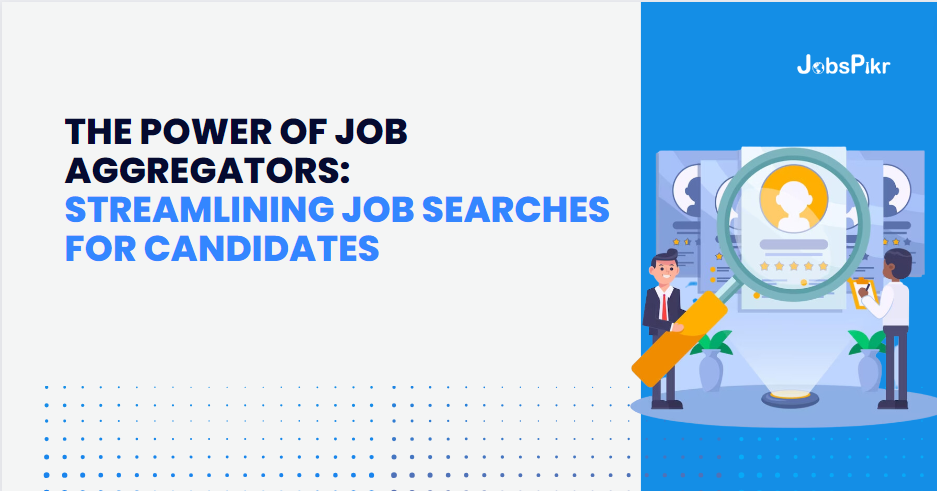While the job market has gone online and boomed in the last decade, finding a job is more difficult than ever. This is especially true for those who have just graduated or for those who do not carry much relevant experience or are trying to move to a different sector or job role. While there are lots of jobs, they are spread across different websites, job boards, and career pages of company websites. Jobs roles may also require:
- Specific skill sets.
- The candidate to relocate.
- Proficiency with certain tools and applications.
- The ability to handle certain responsibilities.
- Relevant experience on similar projects.
Given that there’s an ocean of jobs on the internet today, finding the ones most relevant to you, and upskilling to find your dream job may be a difficult task. Unless you map your requirements to the job search in the correct fashion, you may end up in a job role that is ill-suited to you. On top of finding the appropriate job posts for you, you would also need help with negotiating salaries or deciding which posts to prioritize.
The Emergence of Job Aggregators
The rise of Job Aggregators has been fuelled by the need to navigate the fragmented job market. Their growth has helped 3 different user groups:
- Companies who want their job posts to reach a wider audience and others who analyze job data to boost their talent management efforts and make the lives of their HR teams easier.
- Organizations that analyze job market data to reach conclusions, build predictive models, or create data products on top of job data for the end users.
- Job seekers who have a rough time finding job listings on hundreds of different websites and keeping track of individual job applications.
The Benefits of Using a Job Aggregator
Job Seekers have a hard time finding relevant jobs and preparing for interviews and assignments– both at the same time. Job aggregators help by taking away a lot of the menial tasks like finding relevant jobs or keeping track of the statuses of different applications:
- Centralized Hub for all Job Listings- The primary goal, and one that job aggregators fulfill to a high extent is bringing job listings from various sources into a single location. This helps save time for job applicants, who don’t need to bookmark tens of websites or keep note of which web pages need to be scoured daily for jobs. A diverse range of job opportunities that can be filtered and searched from are made easily available thanks to these aggregators. A single source of truth also helps ensure that candidates don’t miss out on relevant job opportunities.
- Advanced Search and Filtering Options- Even if you have all the jobs in the same location, finding the ones most relevant to you can still be difficult. Different features can help make your task easier–
- Filtering options such as location, salary range, industry, size of company, and more.
- Keyword search options on attributes like job titles, skills, and tools that the candidate must possess knowledge of.
- Advanced options like fetching jobs only from a list of companies, startups, or those that require ‘n’ years of experience.
Job Aggregators offer these features and more to help shortlist jobs so that applicants have a shorter list to work with, and less manual effort is spent in finding the dream job. These features help candidates match their skills, experience, and qualifications with jobs and hence make better decisions.
- Customized Job Alerts- Job Aggregators not only offer a wide range of jobs to pick and choose from but also often allow you to set up alarms based on certain criteria or keywords. For example, you can set up a notification to be alerted whenever new Software Engineer positions are advertised in the New York region by companies having more than 1000 employees. This allows candidates to stay on top of things and apply to jobs long before others who scour company career pages periodically. Given that hot job listings often get thousands of applicants, companies often take a cutoff list of the first 100 or 200 candidates, filter and interview them first, and then move on to the next set. Hence, being one of the first applicants has its benefits.
- Higher Exposure- Most successful careers are not straight paths. Instead, they are full of curves and tangents. Those having a variety of experiences in a diverse set of companies are likely to become future leaders. However, candidates may not always be aware of the different job opportunities that may suit his or her skill set. For example, someone great at math, numeric methods, and quant may be thinking of becoming a college professor. However, on using a job aggregator website, the person may realize that the skillset is also in high demand in the finance industry. Hence, exposure to a wider job set helps job applicants make more informed decisions.
- Ease of application and tracking- Applying for jobs on numerous websites and then keeping track of them daily can end up being a nightmare. Instead, candidates would prefer to have a single place where they can-
- See all the jobs that might be relevant to them.
- Job Applications that they have shortlisted.
- Job Positions for which they have been shortlisted.
- Stages in the interview process in which he or she is stuck for different applications.
Given that the application process is both time taking and complex, these aggregators also often allow you to submit one single set of information and auto-fill them on all job applications. This is done through the interface provided by the aggregator itself, thus saving the time required to go through individual websites of brands and filling up hundreds of individual forms. Given that this streamlined process makes job application a breeze, candidates are likely to apply to more jobs and thus stand a better chance against their peers.
- Reviews and Insights- Job seekers value transparency and prefer to have a deeper knowledge of the work culture at companies before they apply. Salary and benefits are no longer the only criteria. Aggregators like Glassdoor provide insights into how ex, as well as current employees, feel about the company– highlighting both the pros and cons. Reviews of interviews as well as questions that were asked are also shared on some platforms. Having all such information on a platter helps candidates make better decisions and also enables them to prepare better for their dream job.
- Ability to use Professional Networks- Some job aggregators connect with professional networking platforms like Linkedin to enable candidates to leverage existing connections. Candidates can benefit by either getting a referral or better insights into a company’s hiring process and criteria.
Getting the Job Data
Whether you want to create a job aggregation website or a job board, the main fruit that you need to pluck is job data and unless you have good quality job data from multiple sources, you will not be able to bring in businesses or applicants. Our team at JobsPikr provides a real-time job feed containing 45 data points from more than 70,000 global sources daily. Aside from the raw data, we also offer data-backed solutions that enable companies to address various problems related to talent management and workforce planning.




